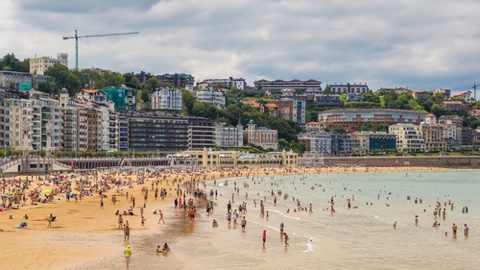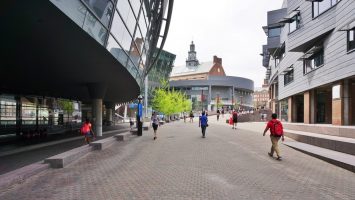
Each year, the European Commission offers funding through its Horizon2020 Program for Smart Cities Lighthouse projects which will integrate commercial-scale solutions with high market potential in the fields of energy, transportation and information communications technology (ICT).
To answer the call, in 2016, three European cities: San Sebastian, Florence, and Bristol launched REPLICATE – REnaissance of PLaces with Innovative Citizenship And TEchnologies. With 36 public and private partners, three follower cities looking to learn from their examples, and solutions in all three focus areas, it’s clear that the project will improve quality of life for effected citizens and shine a beacon for other communities looking to replicate their success.
“That is why it is called a Lighthouse,” said Ana Aizpuru, who oversees intelligent and sectoral strategy, for San Sebastian. “Because some cities are bringing light to other cities.”
In each city, the team chose a district with a need and prepared a public private consortium of 36 organizations from all three cities to work together. These partners include educational institutions such as Oxford University and University Degli Studi Firenze, businesses such as Leycolan and Esoterix, and governmental organizations within the city and the broader European Union.
REPLICATE begins with three years of implementation, followed by three years of data collection and reporting. Each of the three cities implements separate active projects within a specific district.
In the city of San Sebastian, the Urumea Riverside District will undergo the greatest transformation with the creation of 1,015 new and retrofit homes to exemplify energy efficiency. All of the buildings will have a connected heating system, providing data to the consumer about energy use and savings but also shared with the city to evaluate trends.
REPLICATE will increase municipal electric vehicle use when it increases the local fleets to 201 vehicles: 27 cars, 26 motorbikes, 4 buses, 112 taxis, and 32 bikes. The project will install 256 electric vehicle charging stations for public use and a municipal mobility management system that allows the team to view the status of its vehicles.
In addition to the implementation of work and generation of reporting, REPLICATE serves as a model for other cities which will more or less do the same things in their own communities, specifically: Essen, Germany; Nilufer, Turkey; and Lausanne, Switzerland. The cities of Bogota, Columbia and Guangzhou, China are observing without a financial stake in the project but with the goal of learning.
The REPLICATE project began last February with a kick off in San Sebastian. By 2019, the installation should be complete, and they will begin reporting data back to the European Commission and host cities.
Stay tuned into their progress online at http://replicate-project.eu/, or talk to them on social @replicateEU.


